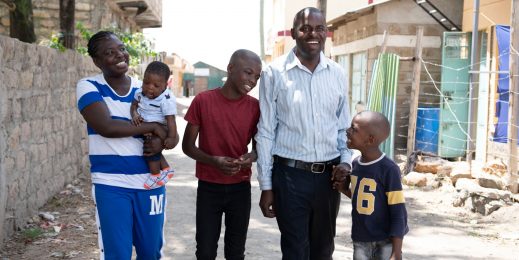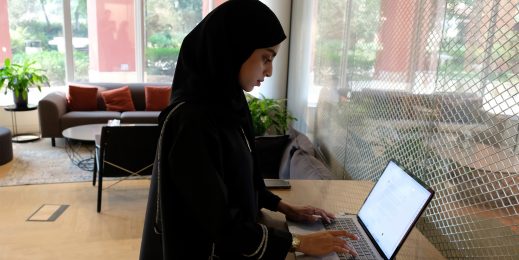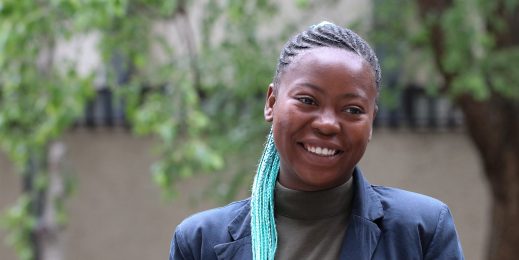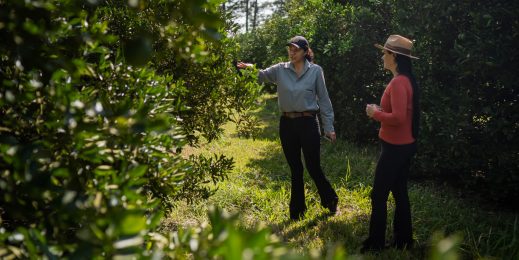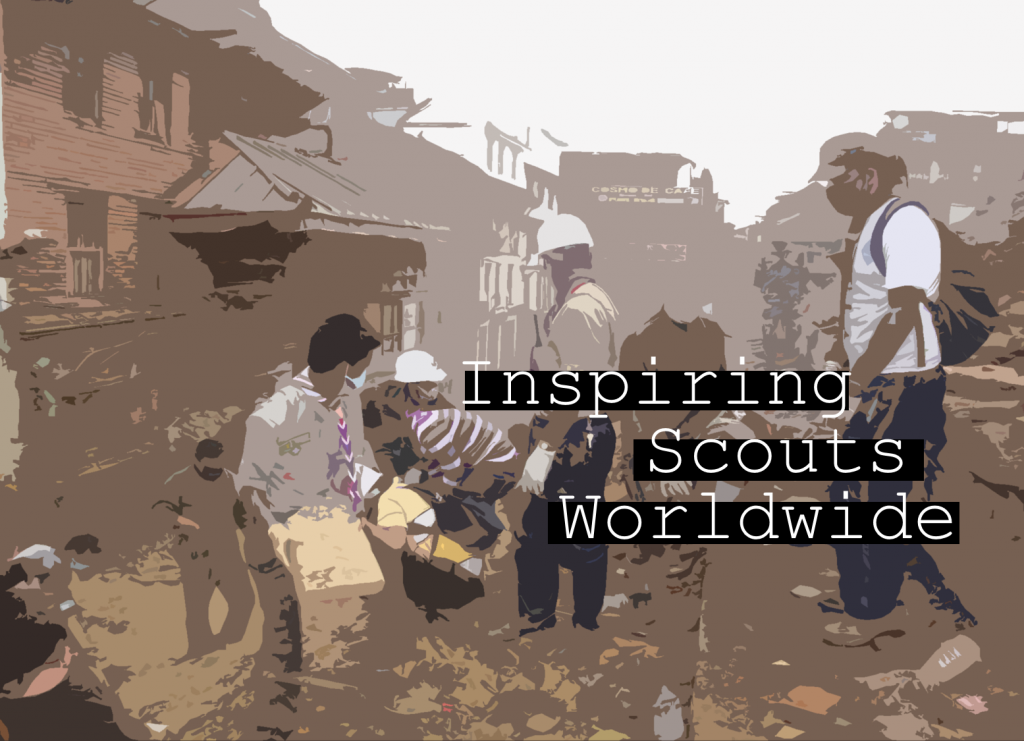
Using the Power of Pictures to Connect the World’s Largest NGO
Earlier this year, two huge earthquakes rocked one of the most remote regions in the world, killing thousands upon thousands, as well as injuring and displacing many more.
Among the devastation that followed, and separate from internationally coordinated relief efforts, one 18 year-old man, a Scout of seven years from Nepal, felt the calling of the Scouts’ core vision: to be active citizens creating positive change in the world based on shared values. With that, Bishal Balami made the decision to selflessly head to some of the worst hit areas to assist those most in need, putting himself in significant danger in the process.
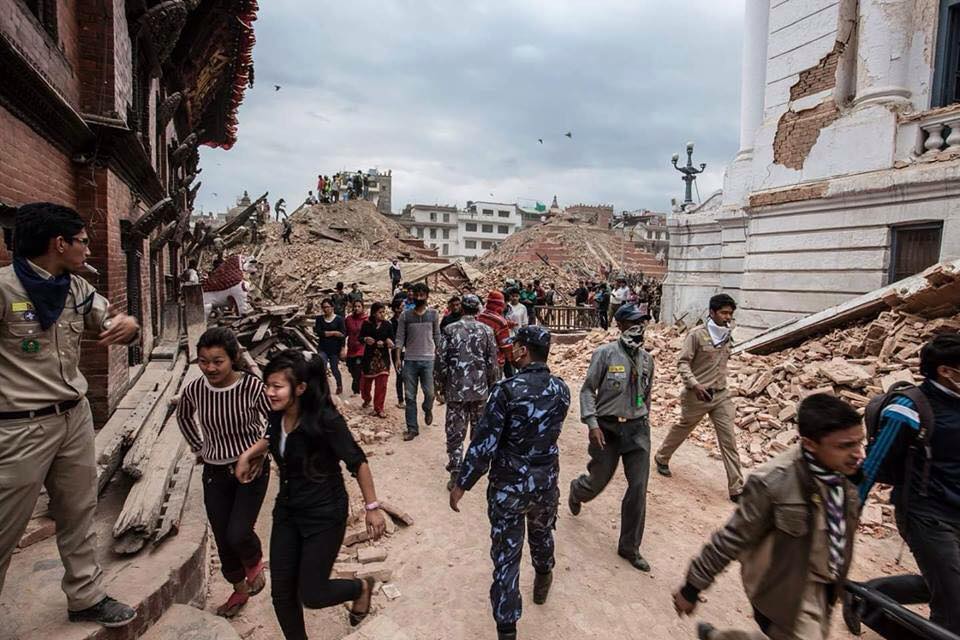
When he returned to safety, he wanted to share his experiences, and inspire others to get involved with this and other missions around the world where help was most needed. Thanks to a chance connection between HM The King of Sweden and digital photography application PicHit, he was able to do just that.
Providing the Scouting membership with information about these kinds of humanitarian initiatives is incredibly important to the organization, helping to boost recruitment, increase awareness of causes, and motivate others to participate.
But finding an effective way of doing so was proving a real problem for Cynthia Marquez, messenger of peace coordinator at the World Organization of Scout Movements. With 42 million members, the organization is currently the world’s largest youth network, changing lives around the globe. However, even in the age of social media, sharing (often confidential) information with the Scouting community is an incredibly difficult task.
“Our members come from all backgrounds, religions and cultures, speaking a wide array of different languages. As a result, communicating on a broad scale presents a significant challenge.”
“We soon realised that the best way to get our messages across was to do so visually. This is why we looked to Swedish crowd sourced photo sharing platform PicHit – as its co-founder Mathias Bjorkholm says ‘Photos have no language barriers.’”
The system was first recommended as a solution by HM The King of Sweden, Honorary Chairman of the World Scout Foundation, following a meeting with some of PicHit’s investors. Part of the BizSpark start-up accelerator program, and based on the Microsoft Azure Cloud platform, today PicHit, in conjunction with other tools, has been used internationally by the Scouts to share in excess of an impressive 35,000 images.
While the system’s images can usually be searched and downloaded by anyone, PicHit specifically adapted the technology for the Scouts’ needs. This involved converting it into a private platform so the organization can choose which images to make public, and when to do so.
“Pretty much anyone who is aware of the Scouts will either have heard our motto ‘Be prepared’ or our slogan ‘Do a good turn daily’”, continued Cynthia. “Supporting your local community and people in need, wherever they are, are both sentiments intrinsically linked with scouting and rooted in our history – something we are keen to regularly communicate to our membership and beyond.”
Great examples of this can be found as far back as the Second World War. During the conflict, Scouts would volunteer as coast guards, couriers and stretcher bearers in an effort to be of assistance to their fellow citizens in times of great peril. They have continued this tradition right up to the present day, providing much needed volunteers for humanitarian missions wherever, and whenever they are required.

Since 2012, over 15 million Scout volunteers worldwide have provided more than 630 million service hours to benefit their local communities. “PicHit has been invaluable in helping us to publicize the fantastic work our members are doing, attempting to do so by other means would have been a far more difficult undertaking,” added Cynthia.
Every four years the organization holds the World Scout Jamboree, a get together that attracts tens of thousands of Scouts from around the globe. Coming 95 years after the inaugural event, this year’s Jamboree is taking place in Japan this week with 40,000 members expected to attend.
In honour of this event, we wanted to share some of their amazing stories. Read on for three incredible accounts of humanitarian efforts driven by members of the Scouts.

Found between the autonomous Tibetan region in China and the North Eastern border of India, Nepal is famous for its mountain ranges, rich culture, and the mystical allure it holds for travellers around the globe.
With 80 percent of its territory occupied by the vast peaks of the Himalayas, the nation’s remoteness, ancient traditions and hospitality have allowed it to acquire a reputation as one of the most beautiful and peaceful countries in the world. Tragically, Saturday 25 April 2015 saw this peace shattered as a magnitude 7.8 earthquake hit central Nepal, killing over 9,000 people, and injuring in excess of 20,000 more.
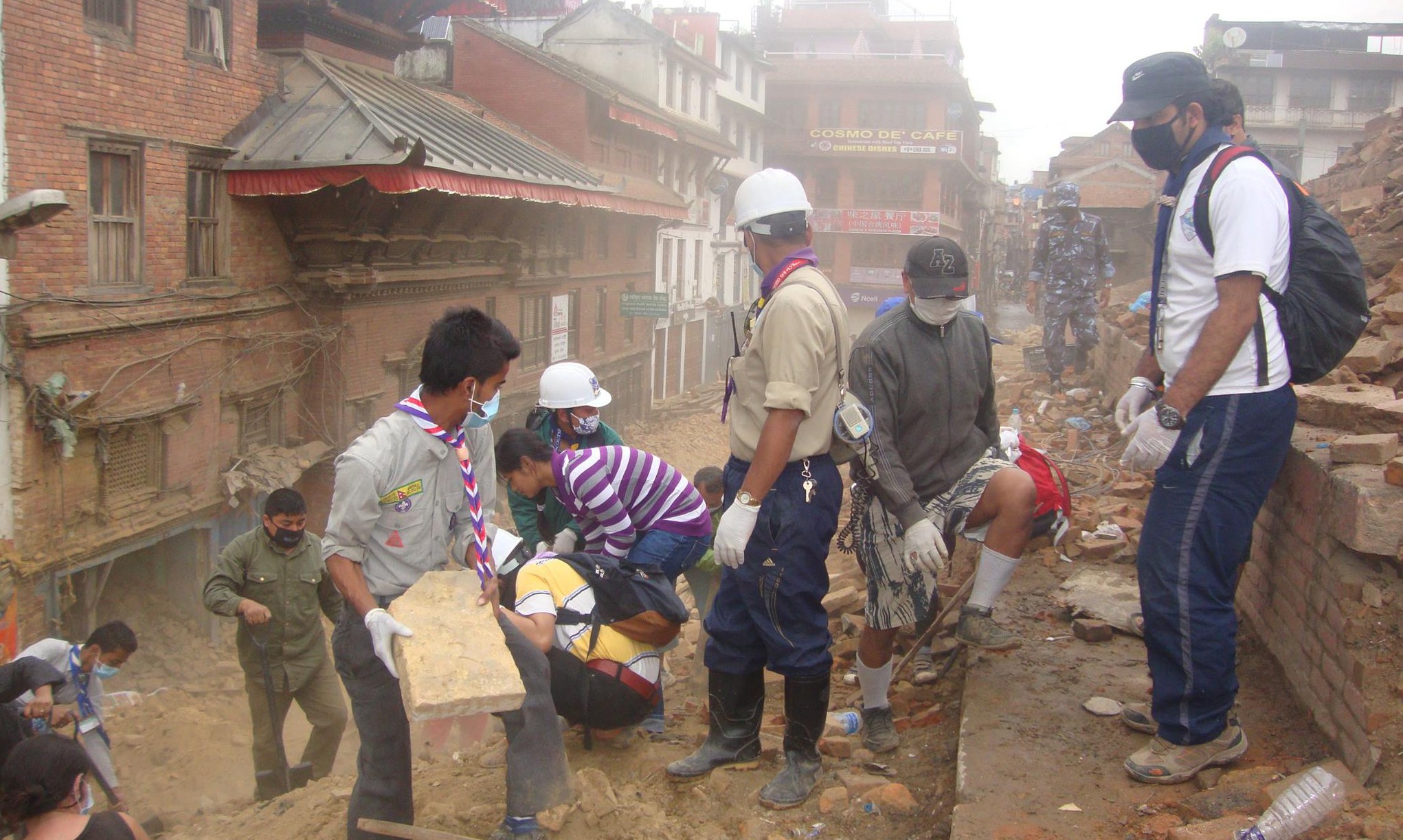
Almost immediately, initiatives were launched centered on Operation Maitri, an internationally coordinated relief and rescue mission supported by countries including India, China, the United States and the United Kingdom. Charitable organizations, such as UNICEF and Doctors Without Borders, were also involved with delivering aid to victims.
However, while nation states and multinational NGOs were leading these highly publicised missions, there was also an individual on the ground going above and beyond to help those worst affected by the disaster – eighteen year-old Bishal Balami, a lifesaver, a hero, and a Scout.
When chaos surrounded him on that fateful day, he kept his composure to respond instantly and provide help to those most in most need. Leveraging his first aid training received through the Scouts, Bishal dug people out from under rumble and carried them to safety, undoubtedly saving multiple lives.
As the first Scout to start the rescue operation in Kathmandu, Bishal’s courageous actions and the documentation of the situation that he shared via PicHit, encouraged peers in his troop and thousands of other Scouts to take action and support ScoutAid efforts. This led to 3,000 university age Nepalese Scouts on the ground coordinating the provision of all forms of relief, from shelter and counselling, to food and supplies. Now, these same Scouts are helping with the recovery process – using 150 mobile phones provided by Microsoft, they are gathering detailed beneficiary information from remote villages in the Kathmandu valley then feeding it into the UN’s coordination system.
“When the earthquake stuck, I was lucky enough to have seven years of Scouting knowledge to help the victims,” said Bishal. “The Scouts teaches many skills that are useful in emergency situations, not to mention about the responsibility to help others if it is possible. I am very proud to share the pictures of me doing so and give others the motivation to get involved.”

The Rwandan genocide is an especially tragic period in Africa’s history. Rooted in deep-seated ethnic tensions, and exacerbated during colonial times, a 100-day massacre of an estimated 800,000 people was sparked when a plane carrying the Rwandan President was shot down on 6 April 1994. Eventually spilling over into neighbouring Democratic Republic of Congo (then Zaire) the conflict has resulted in over two decades of unrest across the region.
As Tutsis and Hutus, the two main ethnic groups in Rwanda, fled the slaughter, a young Scout leader in Goma, DR Congo, Gilbert Mussumba watched as his hometown turned into one of the world’s largest refugee camps. With two million people entering the country, the situation quickly deteriorated, resulting in thousands of deaths related to unsanitary conditions alone.
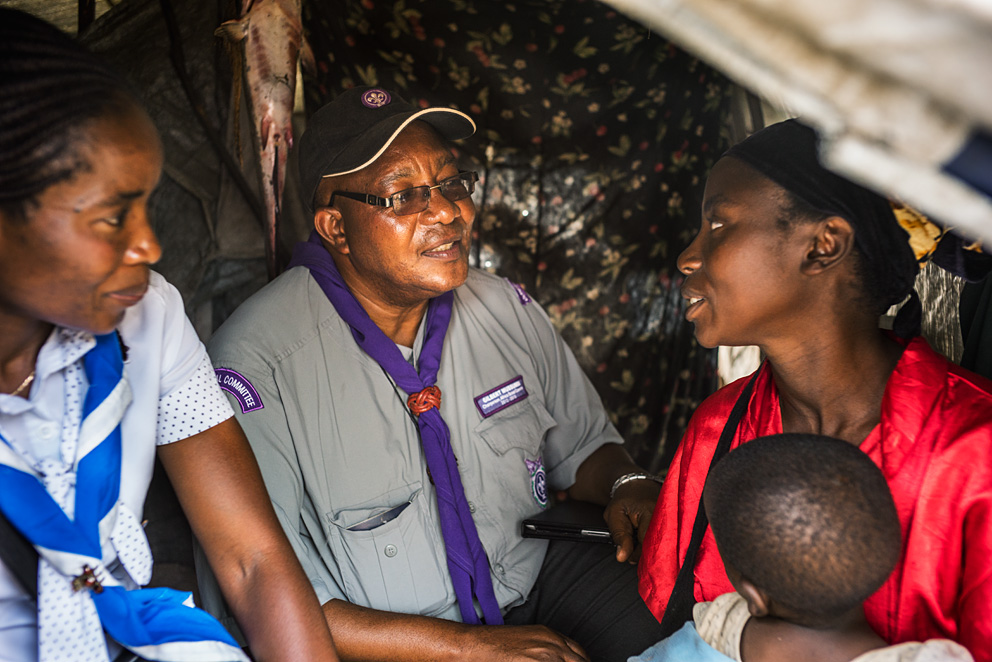
Gilbert explained “The local authorities and NGOs were struggling to establish the basics needed to cope with the in-flux of refugees and the logistics of distributing relief packages. I knew my troop could help so we entered the camp and quickly set about helping to distribute food and clothing, as well as burying bodies to prevent the spread of disease. While doing so we were able to build relationships, and gain the trust of refugees. This led to us taking on new members and the eventual development of an extensive peace network throughout the region.”
When recruiting new Scouts from the refugees, Gilbert and his troop were careful not to reference ethnicity in order to avoid exacerbating tensions that existed between the two groups. This meant he was able to create a strong team, identifying solely as “Rwandans,” and sharing a common goal. Working together over the following months, from these modest inter-ethnic beginnings they built a network of over 30,000 Scouts, all trained in peace education and dialogue, throughout the Great Lakes region of Africa.
Again, using the power of PicHit and Microsoft Azure, sharing images of this effort has allowed Scouts around the world to be inspired by what can be achieved if they aim high and work together.
Gilbert has come a long way since, and is now the elected Chairman of African Scouting and an inspirational leader to Scouts worldwide. His vision, tenacity and resolve has seen the Scouts promote dialogue, often in extremely difficult circumstances, as the best way to address and eliminate age-old inter-tribal conflicts.

Last year, the world’s media began to report on a viral illness rapidly spreading throughout countries in West Africa. Affecting populations in Guinea, Liberia, Nigeria and Sierra Leone, and even claiming victims as far away as the United States, the Ebola epidemic of 2014 is the deadliest to date, killing five times more people than all previous outbreaks combined since the disease was first discovered in 1976.
According to the World Health Organization (WHO), the average Ebola case fatality rate is around 50 percent, with symptoms including fever, diarrhoea, vomiting, as well internal and external bleeding. It is spread both by direct contact with the bodily fluids of infected people, and indirectly via surfaces and materials, such as bedding and clothing, contaminated with these fluids.
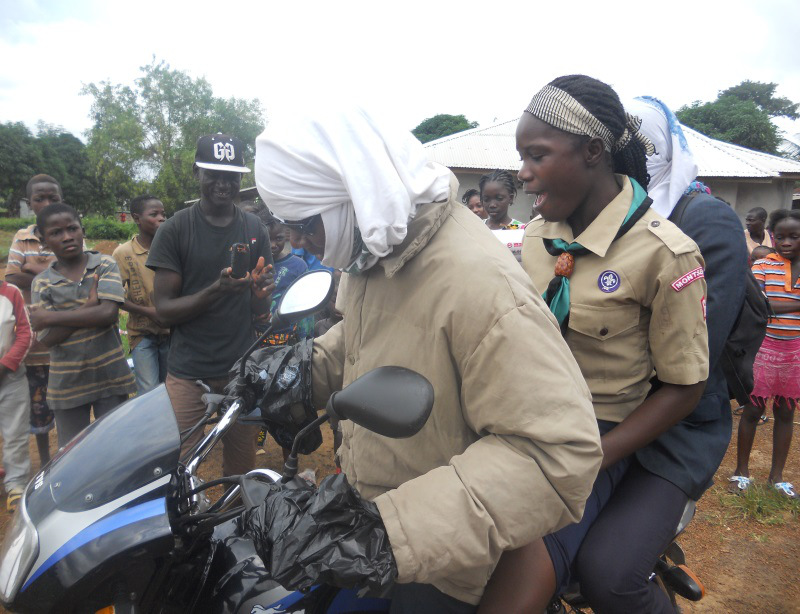
Unfortunately, transmission rates are exacerbated by culture and traditions common to some of the worst affected areas. West African traditional funeral and burial practices, for example, often involve the washing of corpses, with mourners sometimes sleeping near the bodies for several nights. In some instances, water from the ceremonial washing of the deceased will even be used for bathing or anointing others – putting those involved at a high risk of infection.
Recognising that this issue needed to be addressed, August 2014 saw a local community troop of the Liberian Scout Association initiate a month of Anti-Ebola sensitization and awareness activities.
“We wanted to provide locals with the education required to help stop the spread of the disease,” said Windell Weah, a local Scout leader involved with the awareness drive. “Around 75 Scouts used live demonstrations and other approaches, to share the preventative advice recommended by doctors. This included regular hand washing, avoiding contact with sick people or dead bodies, and not eating bush meat. We also advised people on safer ways to greet their friends and family, avoiding handshakes, hugging, or finger snapping, which is a common practice here in Liberia.”
The impact that the troop had was invaluable, empowering communities to take tackle the problem head-on. Locals are embracing preventative measures, and now have the knowledge to both identify and nullify any new sources of infection before they escalate.
.
The Scouts has only just begun to initiate a coordinated effort to integrate technology solutions across the organization in the last six months. Local troops operate on an autonomous basis, and it’s not unusual for kids to start their own groups, even doing so in areas where the Scouts are not currently operational. “As more troops adopt the PicHit platform and begin to leverage the power of its functionality, it’s amazing to see even more inspirational stories emerge, helping to drive sign-ups, rally people to action and help change lives everywhere,” concluded Patrick Walsh, content and community officer of PicHit.
Scouting is the greatest leadership development programme on the planet. Its global network of 1,5 million local groups in 163 countries has over 40 million youth members and 10 million adult leaders in support. Scouting graduates 10 million young leaders each year, and with close to 500 million alumni are alive today, this represents a global force of active citizens, skilled in leadership and teamwork, and prepared to take action when needed. Leave the world a little better than you found it!
PicHit is a global “free trade” photography market place, offering photographers the chance to earn cash while providing photo users with access to millions of legally cleared images for low or no cost. Follow us on Facebook, Twitter and Instagram and remember to tag your photos on social media with #PicHitMe and #PicHit so that we can share them for you.
Microsoft is helping to foster European entrepreneurism through our global BizSpark program which helps start-ups get the software and support they need to get off the ground. We’ve helped 16,000 European start-ups to-date through BizSpark, and have recently created accelerator partnerships through Microsoft Ventures to help even more start-ups in Paris, London and Berlin to quickly become thriving businesses.











